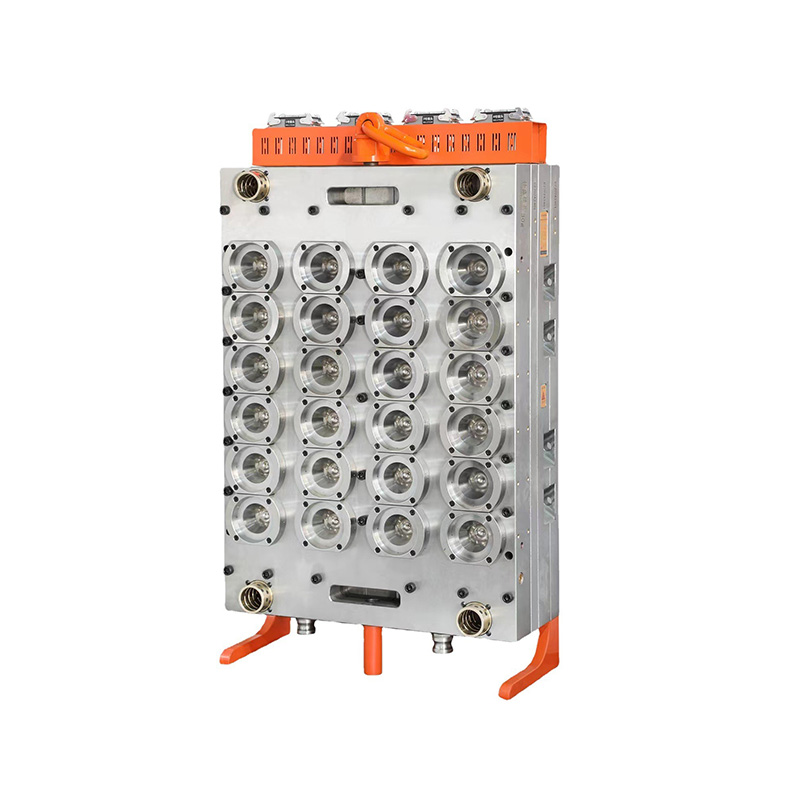24-Cavity Preform Mold
The 24-cavity preform mold is a key tool in the manufacturing of plastic preform...
See DetailsThe manufacturing industry is constantly evolving, with new technologies and materials shaping the way products are designed and produced. One such innovation that has gained significant traction is the preform mould, a versatile tool that plays a crucial role in various manufacturing processes. This article delves into the versatility of Custom preform moulds, examining their applications across different industries and the benefits they offer in terms of precision, efficiency, and cost-effectiveness.

Perform moulds are essential in the plastics industry, where they are used to shape raw materials into specific forms before they are blown into their final form. These moulds are designed to withstand high pressures and temperatures, ensuring that the preform maintains its shape and integrity. The use of preform moulds allows manufacturers to produce a wide range of plastic products with consistent quality and precision, from bottles and containers to automotive parts and household items.
Beyond plastics, preform moulds are also vital in the glass manufacturing process. In this context, they are used to form molten glass into the initial shape of bottles, jars, and other glassware. Its versatility is evident in its ability to create intricate designs and complex shapes that would be difficult or impossible to achieve with traditional glassblowing methods. This not only enhances the aesthetic appeal of glass products but also opens up new possibilities for functional design.
Perform moulds are not limited to plastic and glass; they also play a significant role in metal casting. In this application, Cheap Preform Blowings are used to create precise casts of metal parts, ensuring that each piece is identical and meets strict quality standards. The use of them in metal casting reduces waste and increases efficiency, as fewer rejects are produced due to inconsistencies in the casting process.
In the pharmaceutical industry, preform moulds are critical for the production of high-quality packaging. They are used to create the initial shape of vials, bottles, and other containers that will hold medications. The precision of it is particularly important in this context, as it ensures that each container has the exact dimensions and volume required for accurate dosing. This contributes to patient safety and compliance with strict industry regulations.
As sustainability becomes a growing concern in manufacturing, preform moulds offer a solution to reduce waste and increase efficiency. By producing consistent and precise preforms, manufacturers can reduce material usage and reduce the environmental impact of their operations. Additionally, it can be designed to be reusable, further contributing to a more sustainable manufacturing process.
The versatility of preform moulds extends to their ability to be customized for specific applications. Manufacturers can work with mould designers to create them that meet their unique requirements, whether it's for a particular product shape, material, or production volume. This customization allows for greater flexibility in production and can help companies stay competitive in a rapidly changing market.
Despite their many benefits, Preform Injection Molding in China also present challenges, such as the need for regular maintenance and the high initial cost of production. However, advancements in materials and manufacturing techniques are addressing these issues. For example, the use of durable materials can extend the lifespan of preform moulds, while new technologies are making the production of custom moulds more cost-effective.
The versatility of preform moulds is a testament to their importance in modern manufacturing. They are a key component in the production of a wide range of products across various industries, from plastics and glass to metals and pharmaceuticals. As technology continues to advance, the capabilities of performing moulds will only expand, offering manufacturers greater precision, efficiency, and sustainability in their operations. The future of preform moulds is bright, and their continued development will undoubtedly play a significant role in shaping the manufacturing landscape of tomorrow.